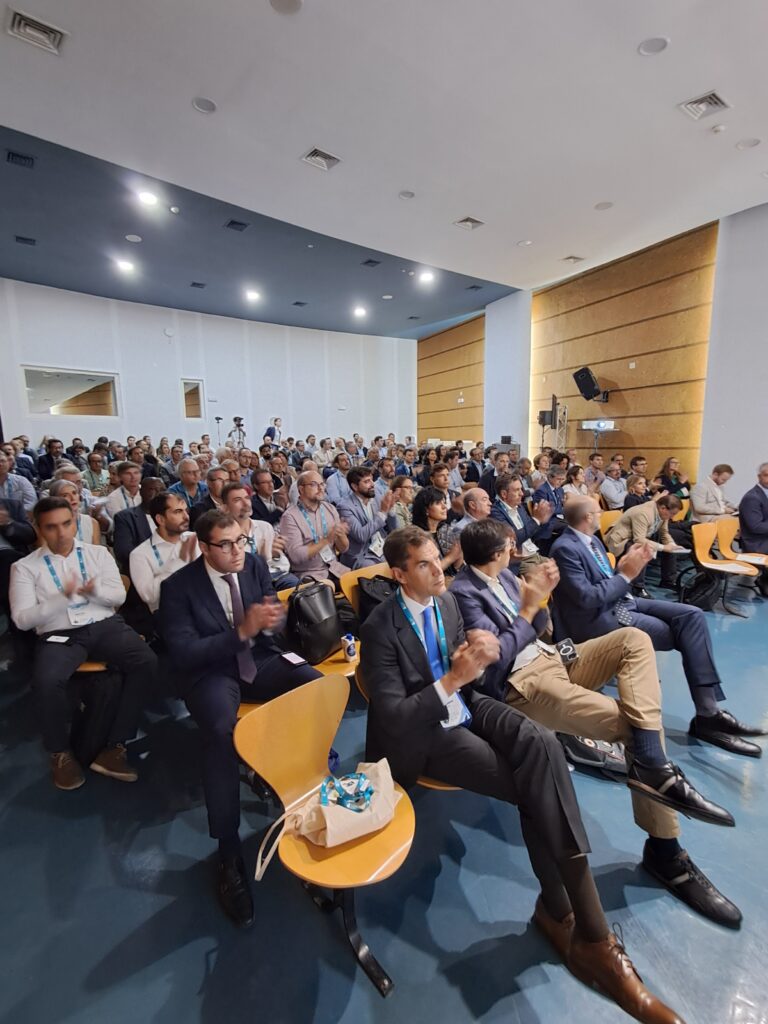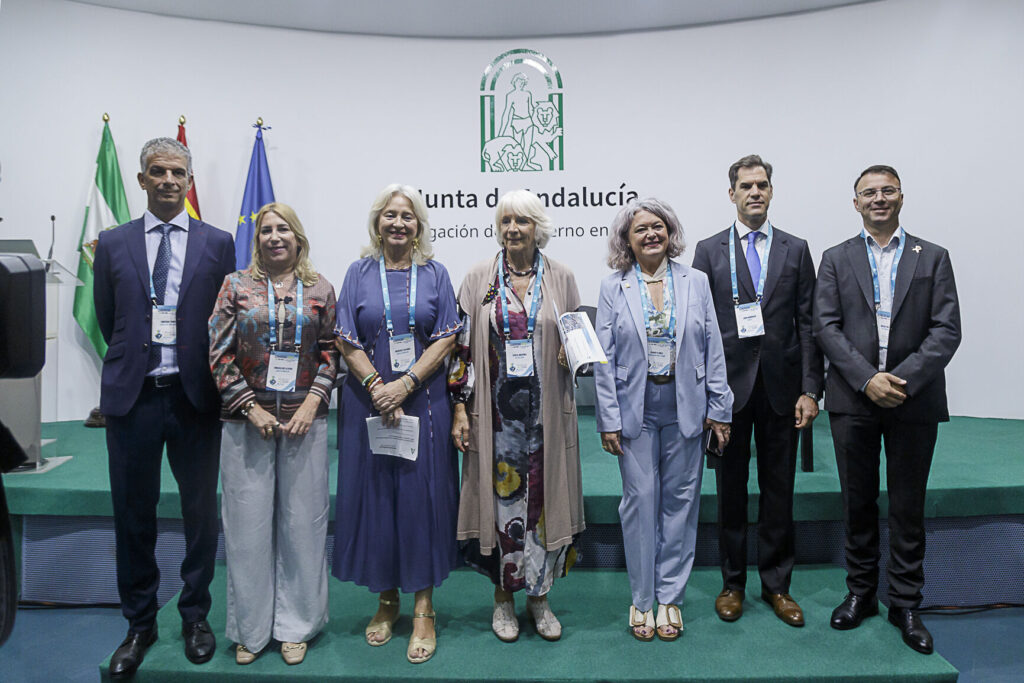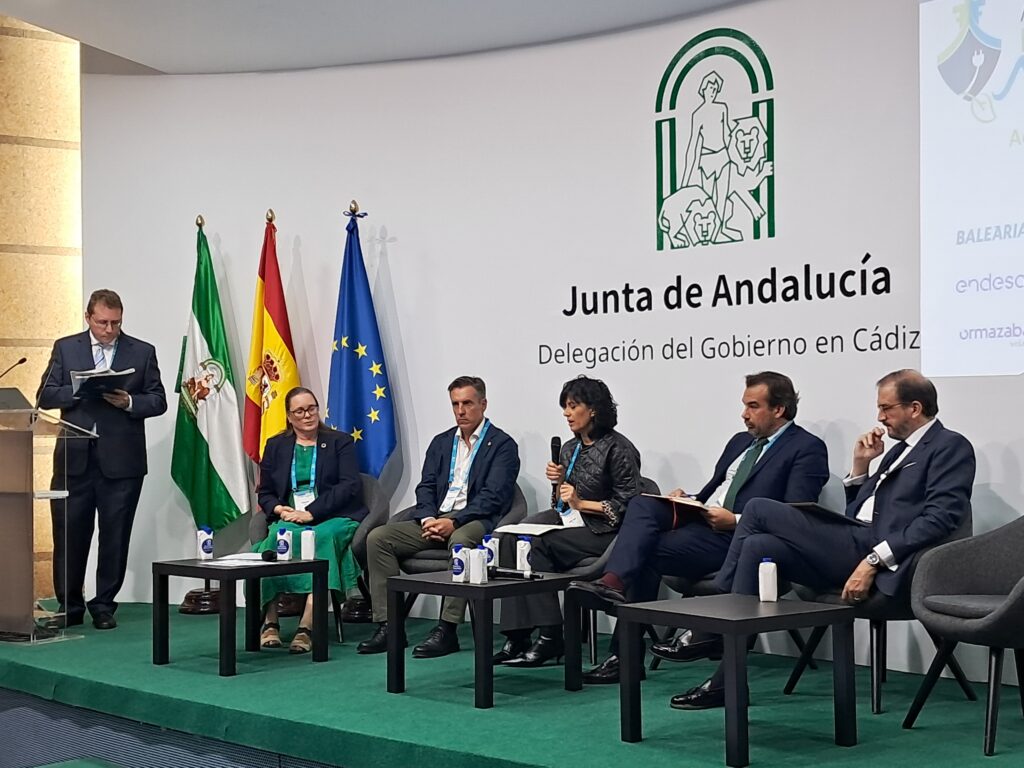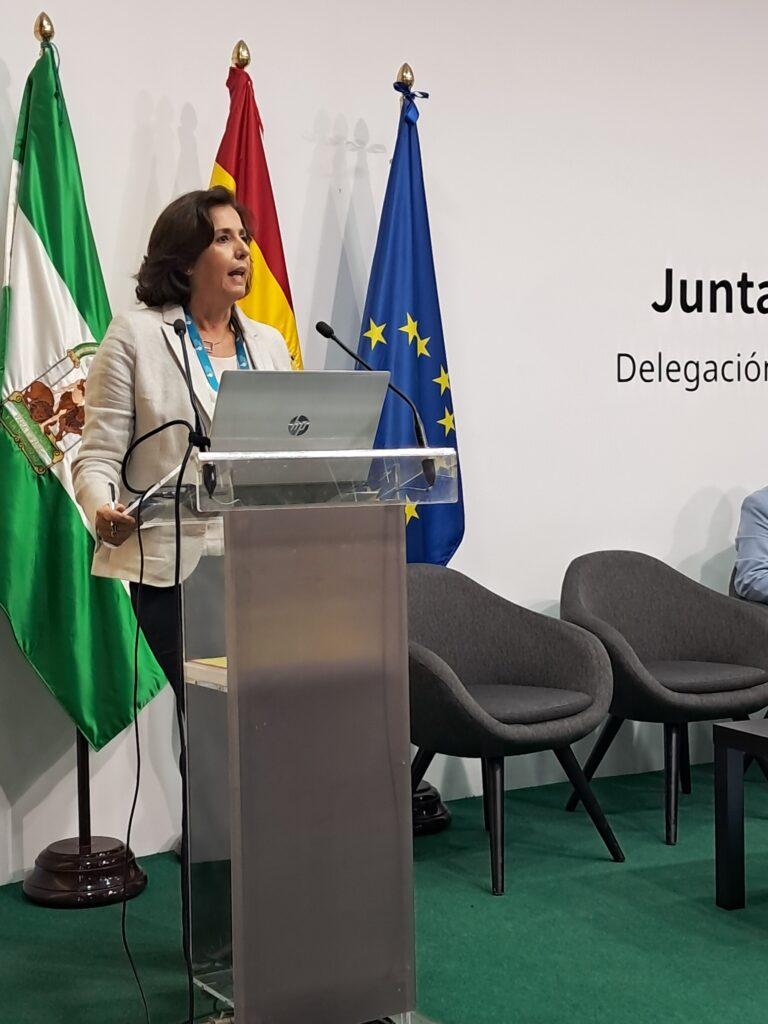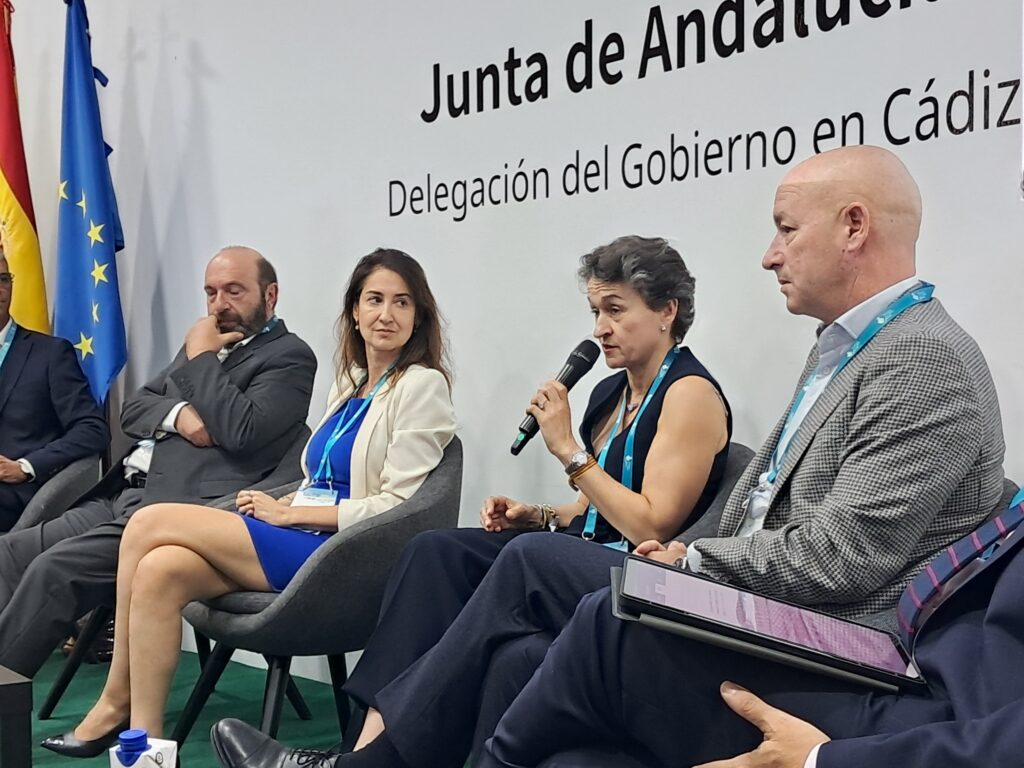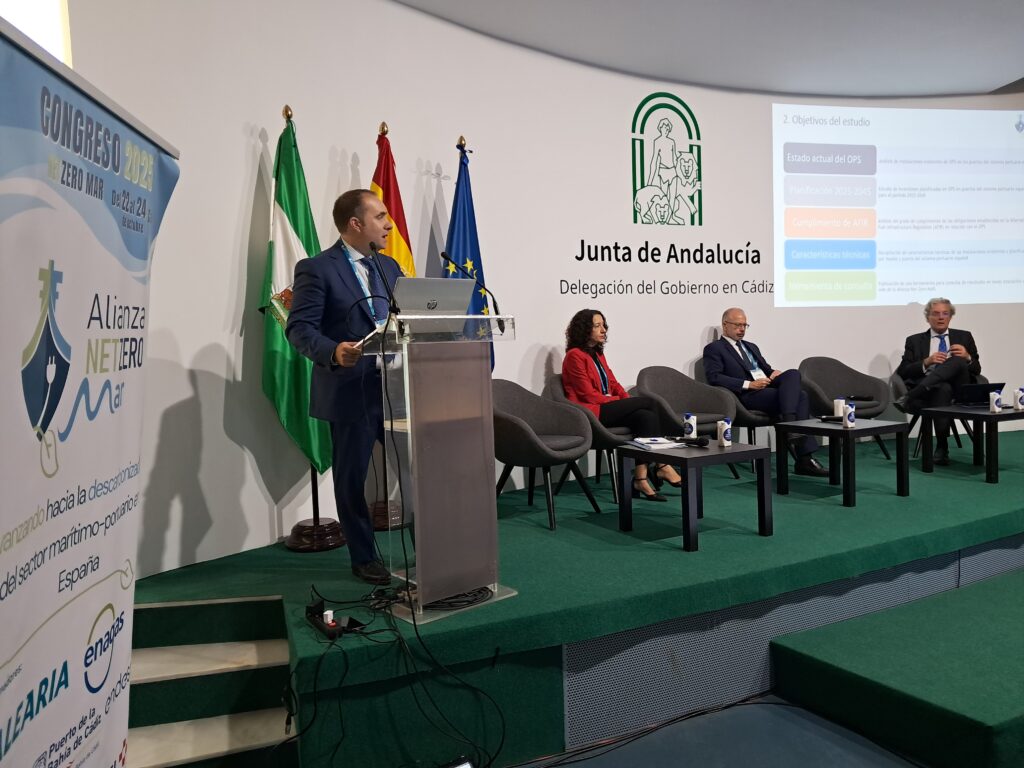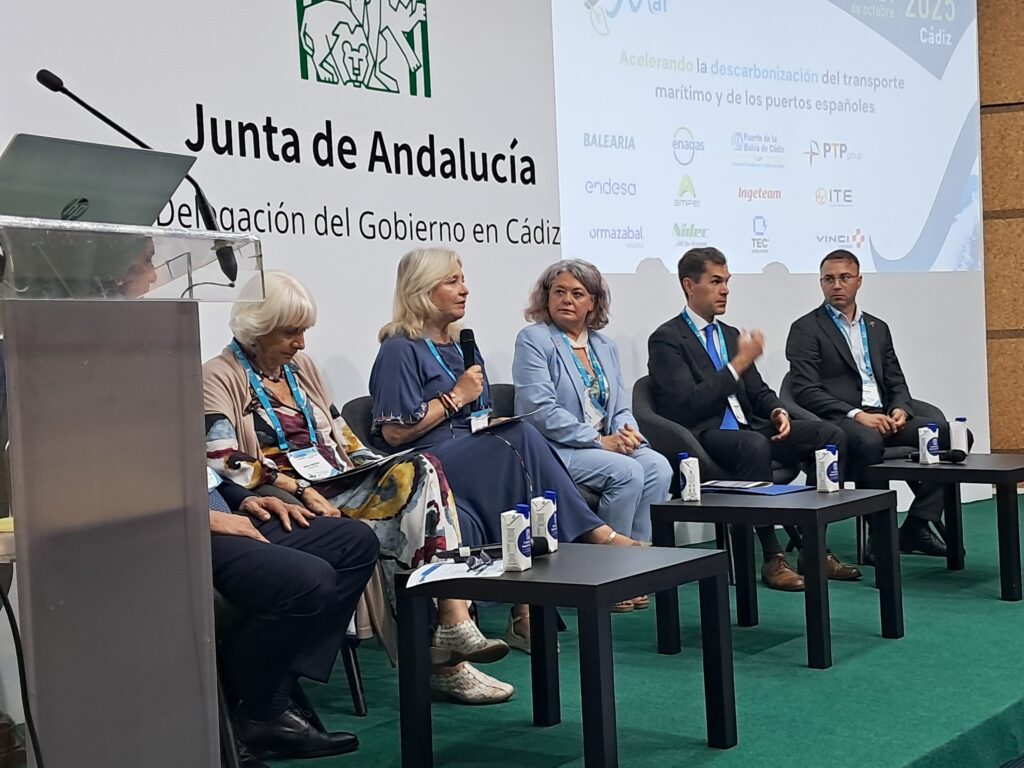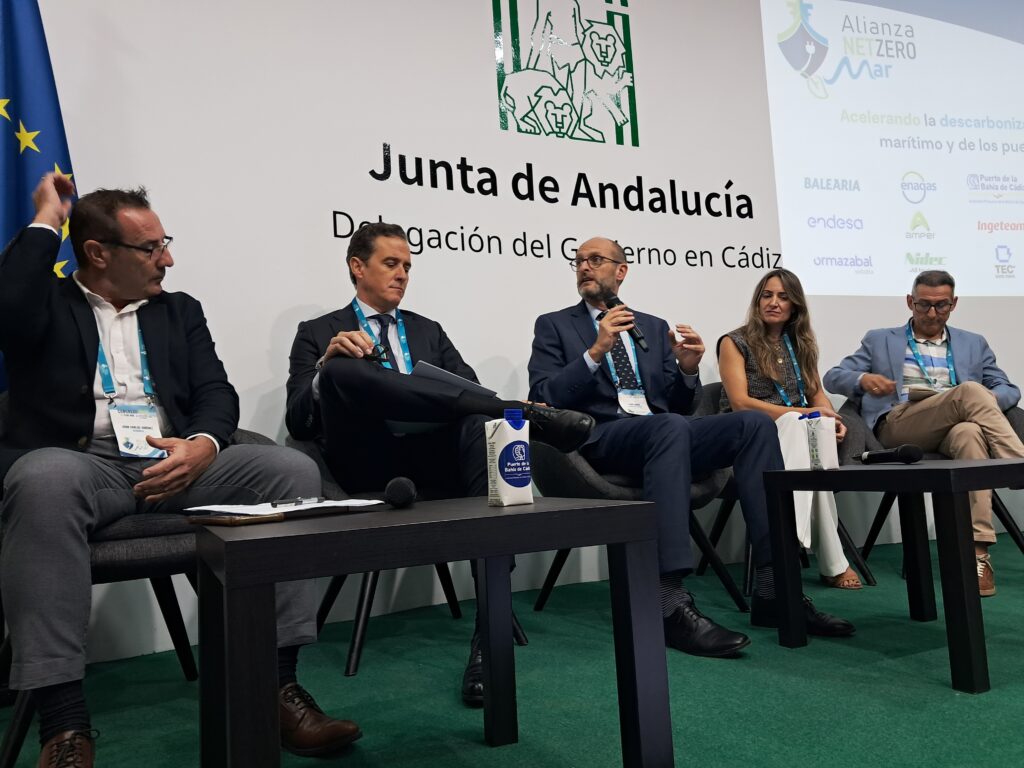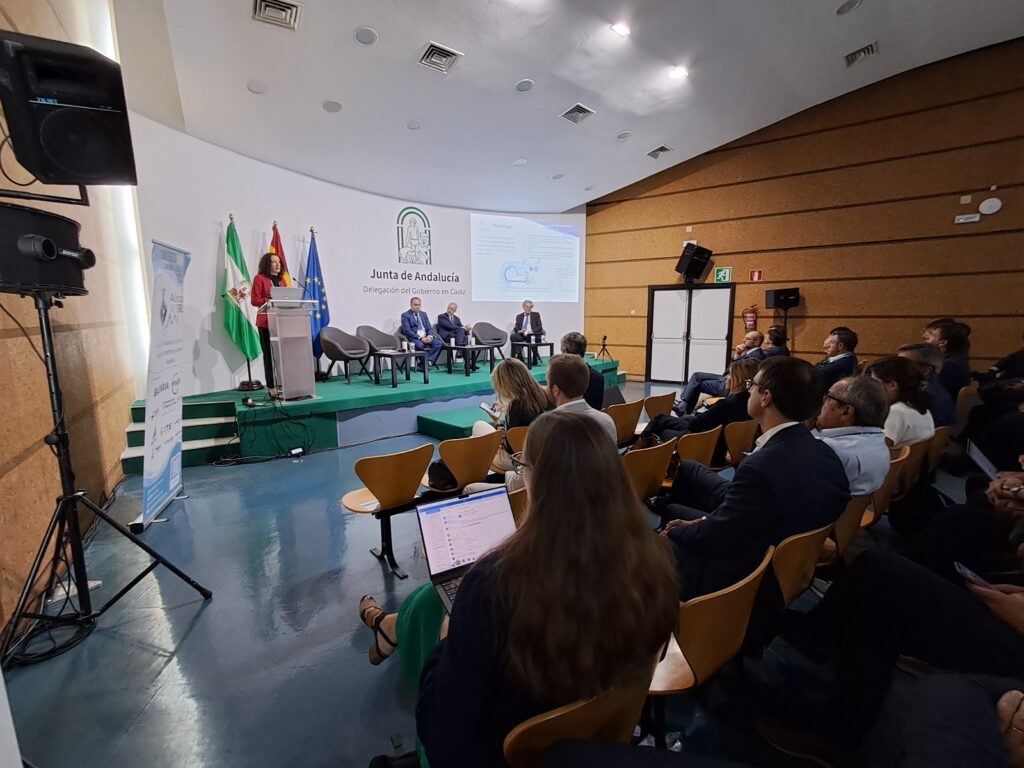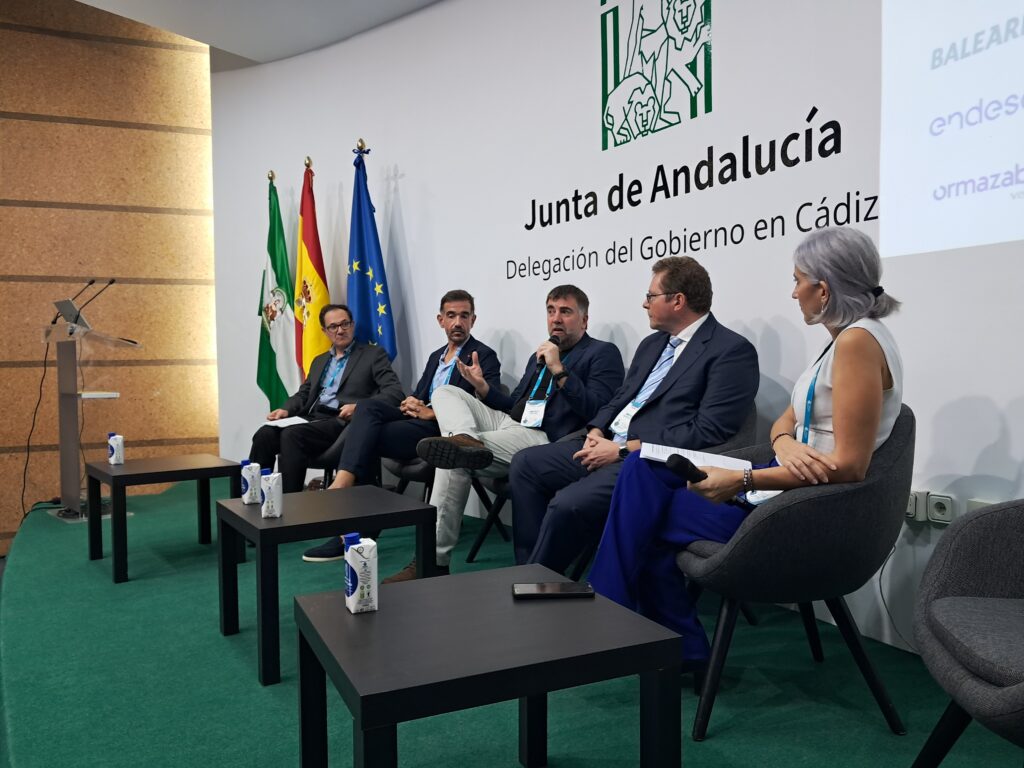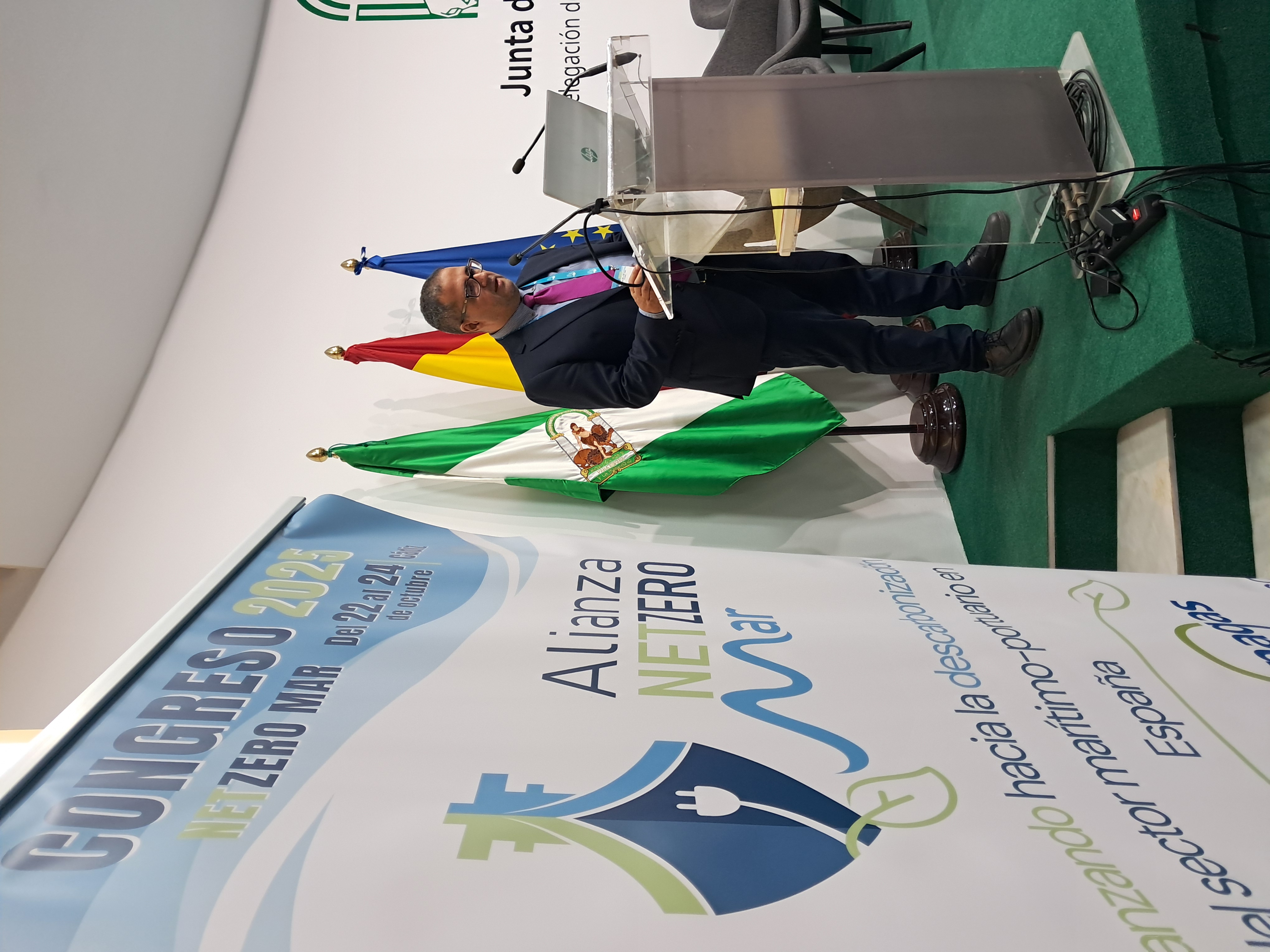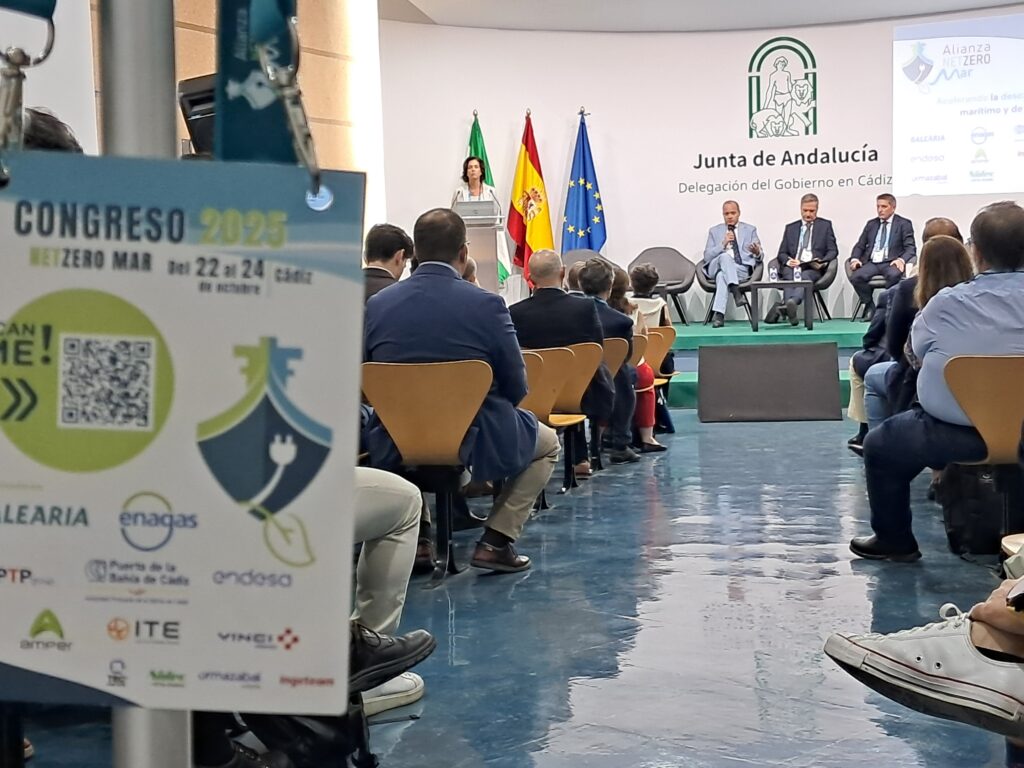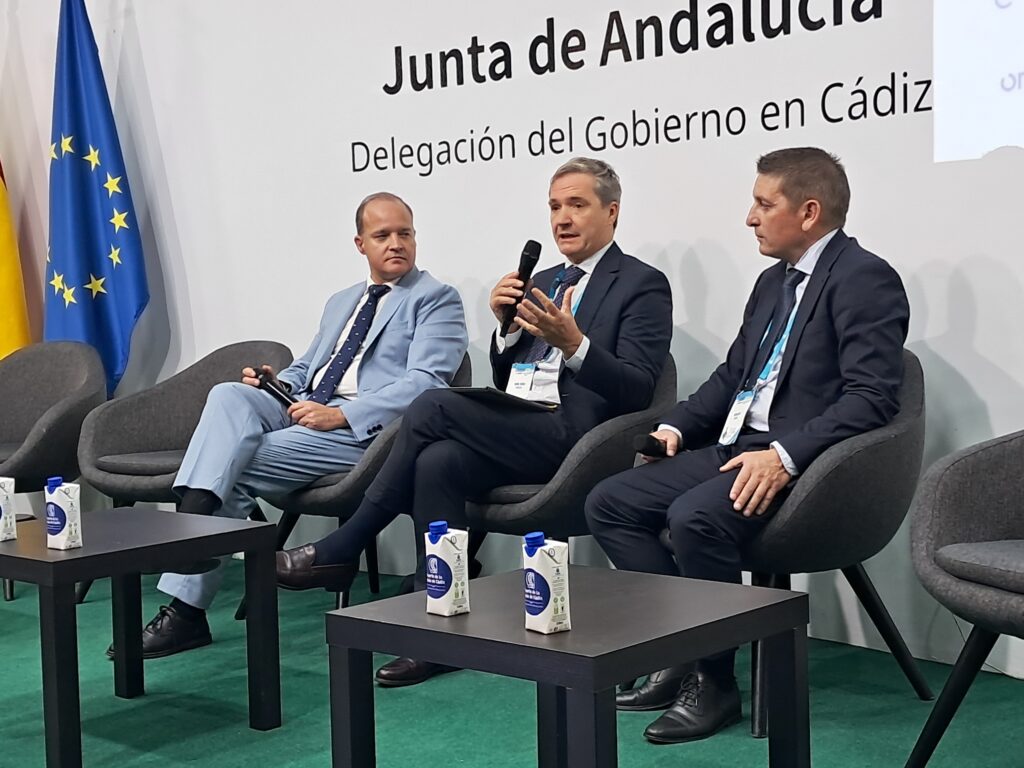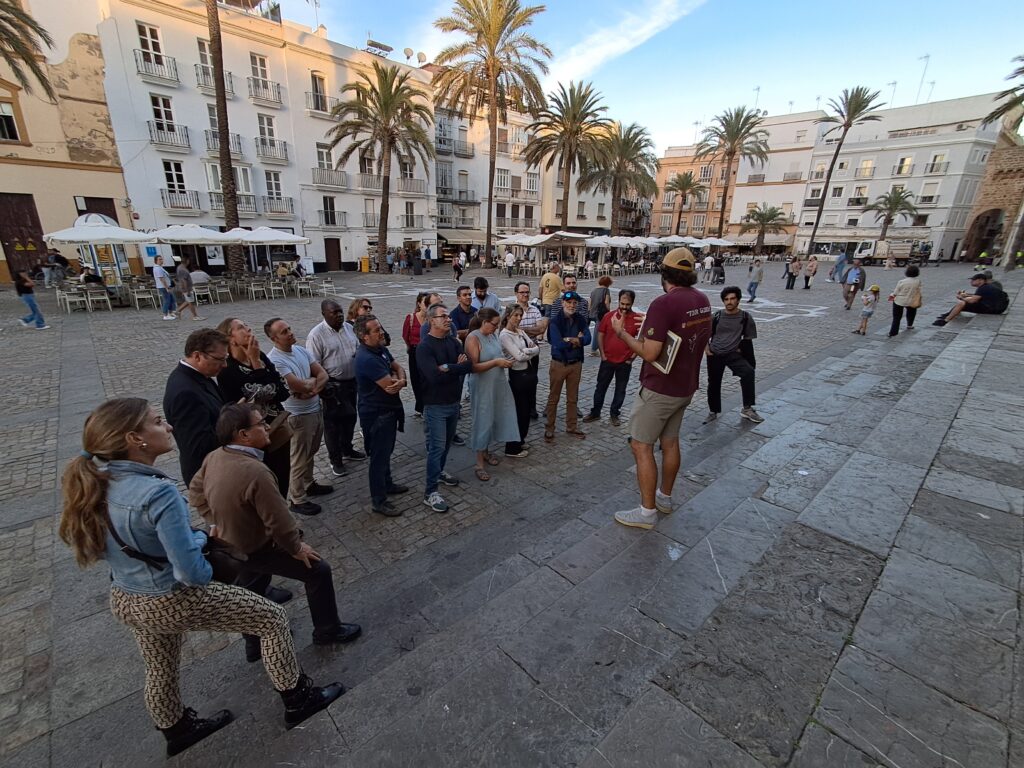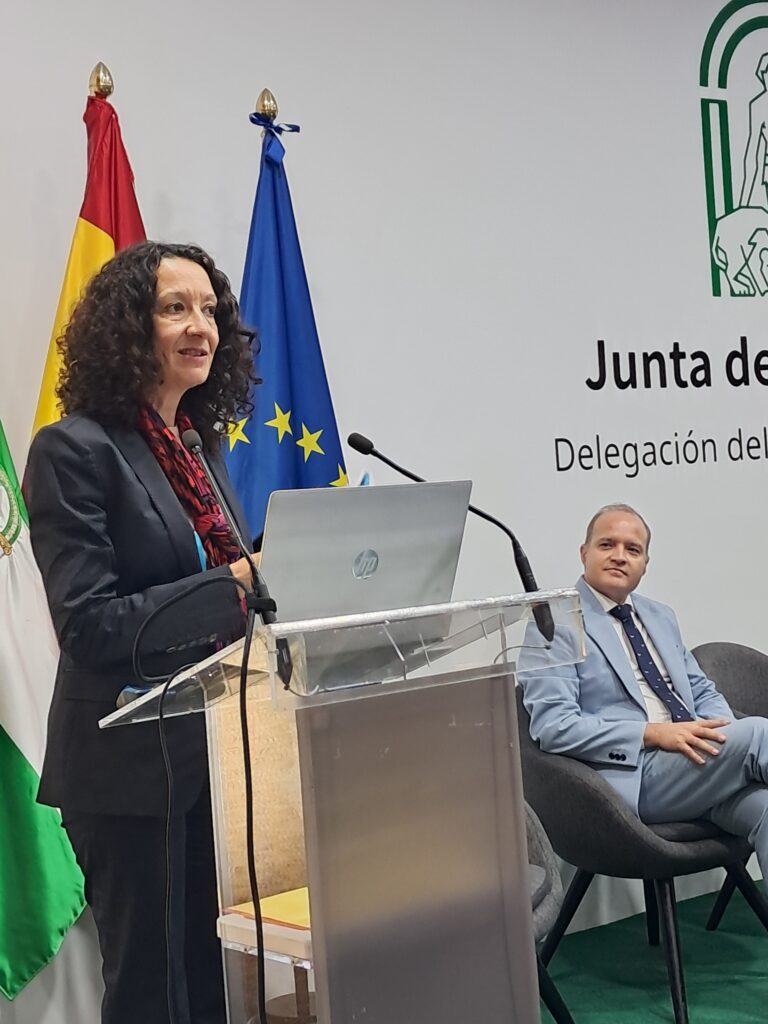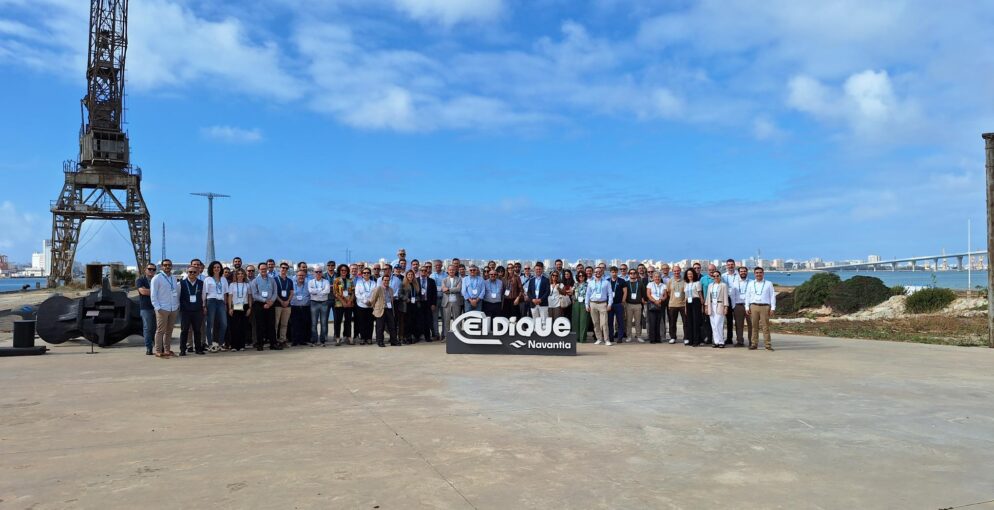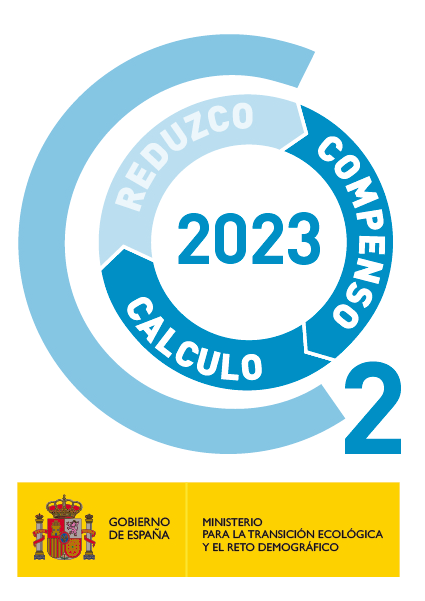- The study was presented at the 3rd edition of its annual conference held last week in Cadiz
- Nearly 200 experts from the maritime-port sector gathered at this Congress, which was hosted by the Bay of Cádiz Port Authority, Endesa, and PTP Group
- The congress included technical visits to the Navantia facilities, the Port of Cádiz, PTP Group, and Endesa’s OPS project for cruise ships
Valencia, October 28th, 2025.– Last week, the Alianza Net-Zero MAR association held the 3rd edition of its annual conference in Cadiz, an event that brought together nearly 200 participants and highlighted the role of the Spanish maritime-port sector as a driver of innovation and sustainability.
This edition, organized jointly by the Technical Secretariat of the Alianza Net-Zero MAR, a task carried out by Fundación Valenciaport, and by the entity’s Board of Directors, with the collaboration of the Port Authority of the Bay of Cádiz, Endesa, and PTP Group, was inaugurated by Santiago Yanes, vice president of the Alianza Net-Zero MAR; Diego Nieves, Director of PTP Spain; Juan Antonio Garrigosa, director of B2G Products and Services for Retail Iberia at Endesa; Mª Teófila Martínez, president of the Port Authority of the Bay of Cádiz; Mercedes Colombo, delegate of the Government of Andalusia; and Blanca Flores, deputy delegate of the Government of Spain in Cádiz.
The first day included a visit to Navantia, where its strategic plans for the future and its fundamental role in the industrialization of the Bay of Cádiz were presented. Endesa’s innovative project for supplying electricity to ships (OPS) on cruise ships was also presented, an initiative that shows that this technology is already a reality in Spain. In addition, participants had the opportunity to tour the Port of Cádiz and attend a professional meeting at Bodegas Osborne, a space that fostered the exchange of experiences and the generation of new synergies.
The second day focused on technical content. The first session addressed the role of renewable energies in ports, with a presentation by Carlos Mínguez on the regulatory framework for energy communities, followed by a panel discussion with representatives from the Port Authority of Alicante, EOPSA, Amper, and ITE, moderated by Ignacio Benítez from the Alliance’s Technical Secretariat.
Then, the session on shore power supply (OPS) gave a full overview of the current state and future challenges of port electrification in Spain. Adolfo Rozadillas from Ghenova talked about the Study on OPS in Spanish ports done for the Alianza Net-Zero MAR; Eva Pérez, secretary general of the Alliance, who presented the study on OPS Hourly Consumption Profiles in the Spanish Port System; and Julio Muñoz, head of the Transmission Grid Connection Services Department at Red Eléctrica de España, who highlighted the need to advance network planning and coordination with ports. Overall, the presentations showed that Spain can achieve 99% compliance with AFIR regulations if the engineering studies on the planned docks are activated in the coming months. The session concluded with a debate moderated by José María Reyes, head of OPS Business Development at Endesa, with the participation of Puertos del Estado, Vinci Energies, Iberdrola, Regenera, and the Port Authority of Algeciras, focusing on the most appropriate business models for the implementation and management of the OPS service.
In the afternoon, attention turned to the decarbonization of port terminals with a panel discussion on energy efficiency and digitization moderated by Maruxa Heras, Head of Maritime Transport at Global Factor, with the participation of Surcontrol, Adur Software, Fundación Valenciaport, and TMEIC Port Technologies. It was emphasized that digitization is not an end in itself, but rather an essential tool for solving specific problems, attracting talent, and improving interoperability. Afterwards, attendees visited the PTP Group’s facilities in La Cabezuela (Puerto Real), learning about its new infrastructure and rail and maritime connections. The day ended with a gala dinner at the Baluarte de los Mártires.
The last day focused on the international and European regulatory framework, with a presentation by Miguel Núñez that helped to understand the next regulatory steps in maritime decarbonization. This was followed by a debate on the decarbonization of ships at sea, moderated by Elena Seco, managing director of the Spanish Shipowners’ Association (ANAVE), which brought together representatives from Baleària, Grupo Suardiaz, and Grupo Consulmar, who shared their experiences and ongoing projects. The session highlighted that electrification, whether direct or indirect, will be key to moving towards more sustainable and competitive maritime transport.
Likewise, the panel on future scenarios for electricity and clean fuels, moderated by Óscar Blanco, senior consultant for Energy Markets and Transactions at DNV, featured the participation of OMIE, Iberdrola, New Energies Coalition / CMA CGM, and aelēc, who analyzed the evolution of energy markets and the impact of decarbonization on prices. According to the analyses presented, the estimated effect on the final price of goods would be 0.1%, which shows that the energy transition has little impact on trade. In this regard, Miguel Rodrigo, managing director of IDAE, highlighted during his presentation that renewable energies represent a strategic opportunity to strengthen Spain’s industrial competitiveness and consolidate its leadership in the transition to a low-carbon economy.
Lastly, the session on green corridors, moderated by Santiago Yanes, head of the Innovation and Strategic Projects Division, featured a presentation by Panayotis Christidis from the European Commission’s Joint Research Center, who shared the European vision on the development of these corridors as a key element in the decarbonization of maritime transport. In this context, during the subsequent debate, representatives from Enagás Transporte, the Port Authorities of Huelva and Valencia, and C2X agreed on highlighting Spain’s potential to lead the creation of sustainable corridors, both national—such as Huelva-Tenerife—and international—such as Algeciras and Valencia. The program closed with an interview with Rosa Serrano Sierra, Member of the European Parliament, who addressed the European Union’s new multiannual budget for transport and energy, highlighting the funding opportunities it will offer to drive the energy transition in the maritime-port sector.
The conference was closed by Javier Cervera and Eva Pérez, president and secretary general of Alianza Net-Zero Mar, respectively, who took stock of this third edition, highlighting the main advances presented during the conference and reaffirming the Alliance’s commitment to the decarbonization of maritime and port transport.
